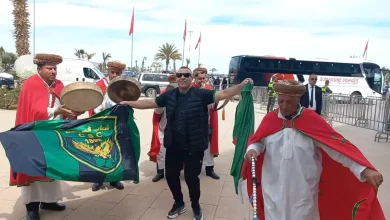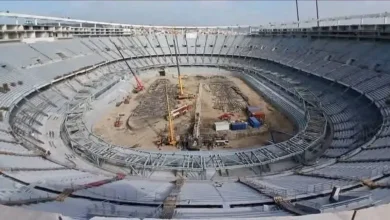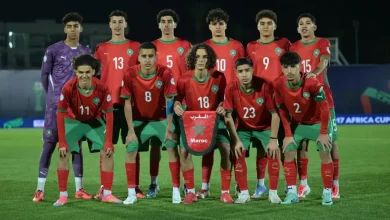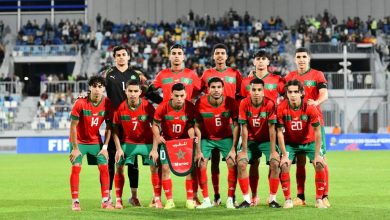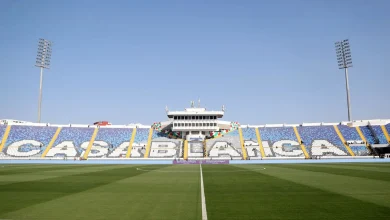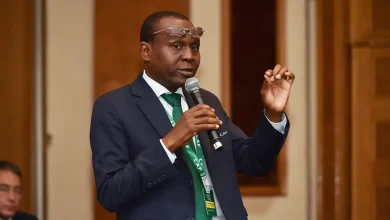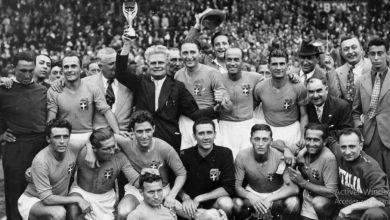In Casablanca, CAN U-17 referees are preparing for the future
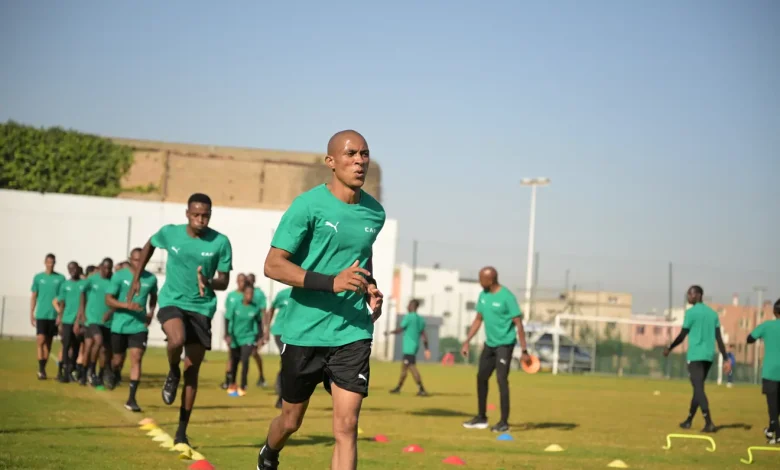
This article was automatically translated from HIBAPRESS, the Arabic version:
Hibapress-Rabat-Caf
At the heart of the African Cup of Nations U-17 CAF Totalnergies Morocco 2025, a special initiative illuminated behind the scenes of the competition: the open doors of the arbitration organized at the Kahrama Center in Casablanca. For two hours of training, the referees present for this CAN Cadette had the opportunity to repeat their ranges under the attentive gaze of Souleymane Waberi, vice-president of the CAF and president of the youth football committee.
On an ultra-equipped terrain with eight cameras and a management dedicated to Var, this session made it possible to dive into the heart of the goldsmith’s work carried out by the officials before the quarter-finals, but also to highlight the new dynamics of African arbitration, resolutely turned towards inclusion, continuing education and excellence.
It is in a high -level technical context, like the infrastructure offered by Morocco, that the competition referees, 45 in number (including 10 for VAR), found themselves for a moment of exchange, demonstration and improvement. The session was meticulously divided into areas: one dedicated to physical recovery for the referees who officiated the day before, another for assistants, and one last for specific work with the Var.
The objectives were clear: refine the positioning, perfect the reactions in a repair surface situation – area of all the dangers in the words of Désiré Noumandiez Doué, president of the CAF referees commission – and improve Var verification times, still deemed too long. All in an atmosphere of rigor but also of passion, where young African officials, mostly elderly from 25 to 35 years old, were training with the enthusiasm specific to their generation.
Prepare the next generation today
For Souleymane Waberi, this session fully embodies the philosophy of CAF in terms of football of young people: to create an environment conducive to learning, to the expression of talent, and to preparation for international competitions. “When young people have beautiful lawns like that, there is a party,” he said at the end of the first phase of the competition, in reference to the quality of the show offered. “There are a lot of goals scored, beautiful goals. It’s good for young people and for the development of our football in Africa. »»
The stake is all the more important since this CAN U-17 is qualifying for the World Cup, with for the first time 10 African teams expected on the world scene. Hence the importance of ensuring that the arbitral body is also up to this ambition. For Désiré Noumandiez Doué, it involves a rigorous selection based on technique, youth, and the ability to adapt to rhythmic and unpredictable matches: “We prefer to have young referees in a young people. This promotes their understanding of the game, their responsiveness, their proximity to the players. »»
During this session, the integration of a training match with a local team made it possible to recreate the conditions of the direct, to adjust the angles of view of the assistants, to work the VAR procedures in real time, and to strengthen communication between the different components of the arbitral body. “We have noticed some shortcomings in terms of concentration and positioning. This is precisely what we are correcting, “said Doué, very involved in the supervision of the workshop.
Women arbitrators: the affirmation of a new era
Among the 45 officials mobilized for this competition, 13 are women. A first which symbolizes the deep transformation of the African arbitral landscape. “It is a strong signal sent to women’s football,” says Désiré Noumandiez Doué. “You have all seen the expression of the ladies on the different stages. They manage to do well. I tell them hat. Their presence is the fruit of a clear desire for gender approach, but also of a long -term work to give them the confidence, the tools, and the necessary responsibilities. “This allows ladies to better flourish, not to have restraint, especially in a traditionally male environment,” continues gifted.
Among these inspiring figures, the Senegalese referee Tabara Mbodji embodies this rising generation. Present in Casablanca, she shares the impact of this experience on her career: “The African Cup of Nations U-17 is a well-structured competition, where we have the possibility of using the VAR in a practical framework. We feel that the CAF is betting on us. This pushes us to go further, to aim for the biggest competitions. For Tabara, the goal is clear: “I want to prove that we have our place, not only in Africa but around the world. »»
Female participation is no longer a simple quota, it becomes a lever for transformation. In the workshops of Casablanca, the women referees received the same feedbacks, officiated the same exercises, analyzed the same Var sequences as their male counterparts. Equal treatment that suggests a future generation of African referees capable of winning in the biggest FIFA competitions.
Look back to the future
This day of open doors in Casablanca made it possible to measure the evolution in progress in African arbitration. An arbitration that is no longer afraid to innovate, which trusts youth, which integrates women as key actresses of development, and which is rigorously preparing to face the requirements of the high level. With the quality of Moroccan infrastructure, praised by Souleymane Waberi-“Morocco is one of the countries that has developed high quality infrastructure this year”-CAN U-17 becomes an open-air laboratory.
In this dynamic, African arbitration gives itself the means to accompany the rise of football of young people on the continent, and to lay the groundwork for a more assertive presence during the global appointments. As Souleymane Waberi sums it up: “This year, Africa sees far, very far. And arbitration must accompany it there. »»

